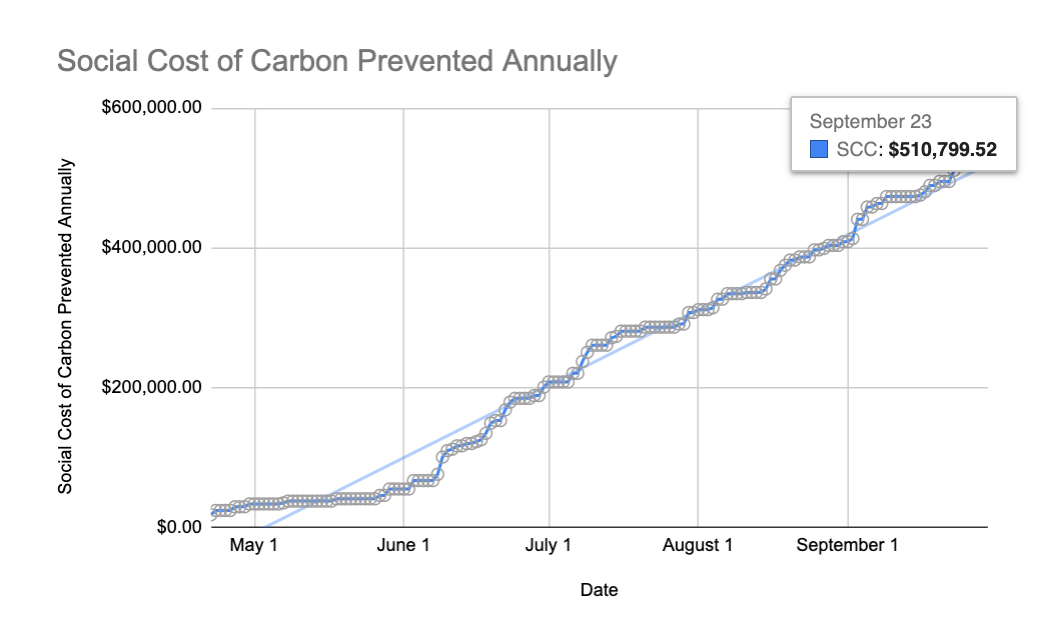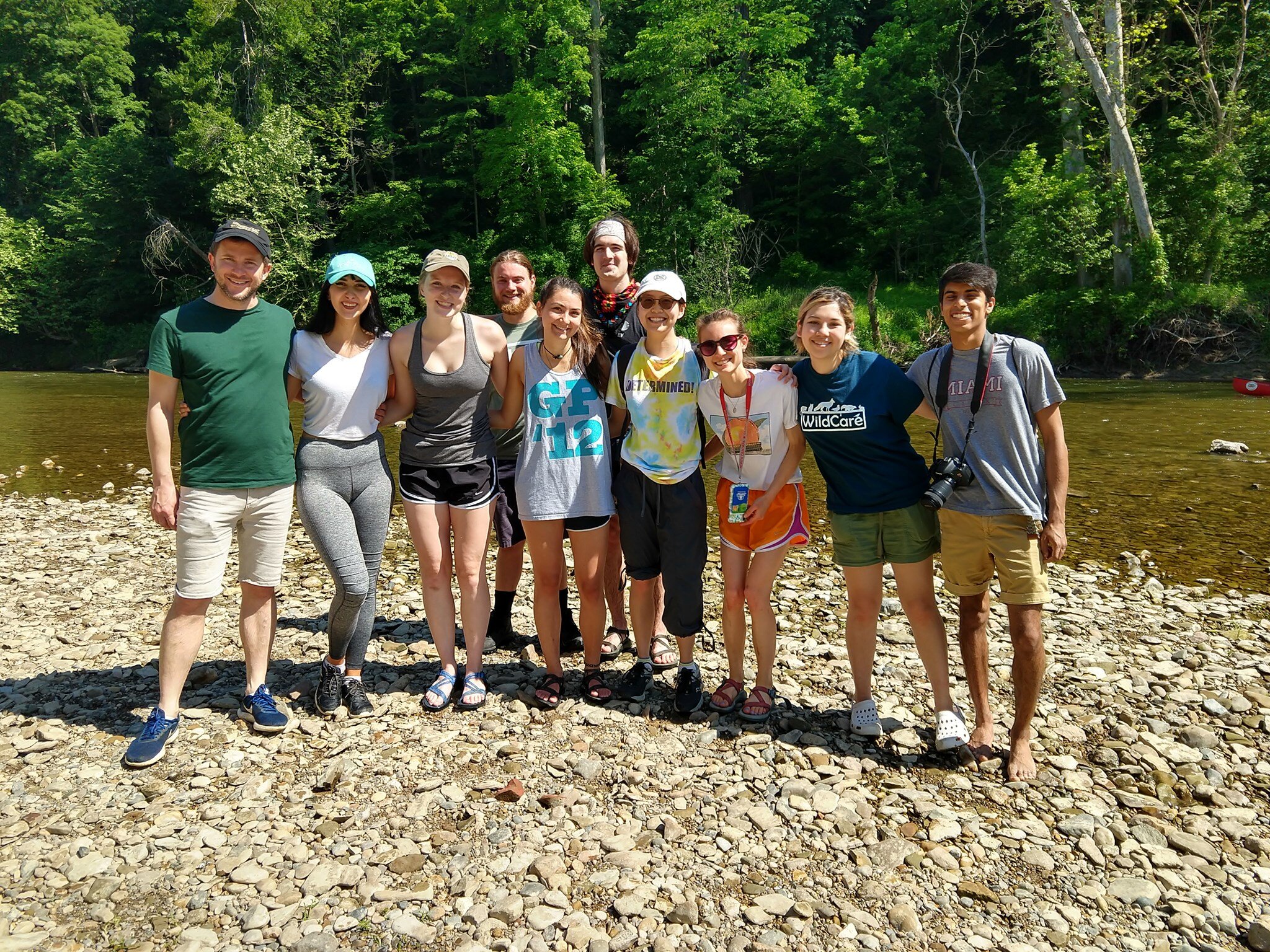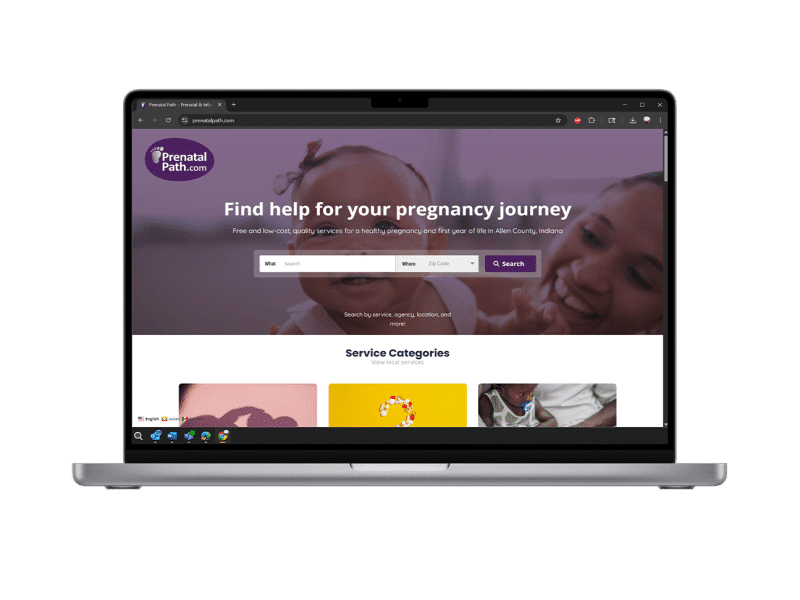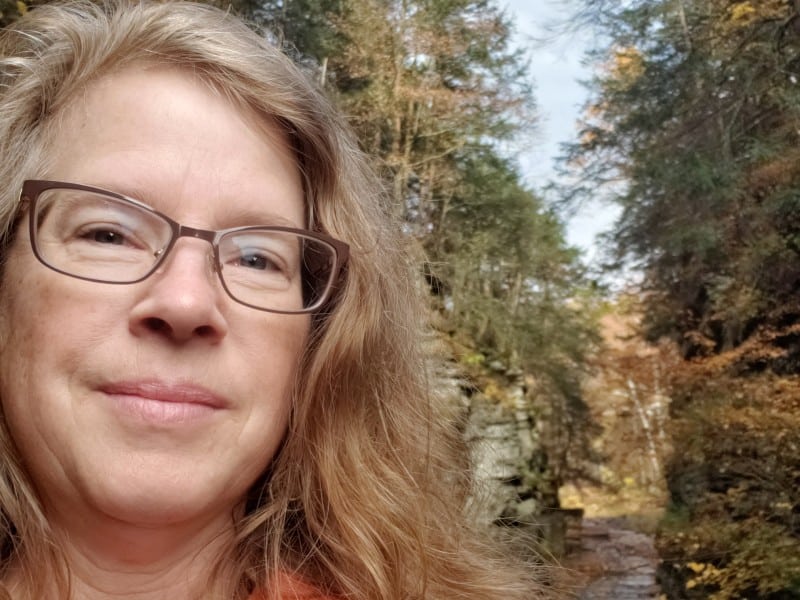Celebrate Earth Day in Indiana by going carbon neutral
Auburn-raised entrepreneur Daniel Poynter shares his vision to disrupt climate initiatives in Indiana—or the lack thereof.

As communities celebrate Earth Day in 2021, it’s easy to feel exhausted and overwhelmed by the global climate crisis.
Every year, human activity, led by coal, oil, and gas production, releases billions of tons of carbon dioxide into the atmosphere with no signs of slowing down. But what if there was a way to counter these effects by investing in efforts to remove greenhouse gases from the atmosphere?
That’s the concept behind Carbon Neutral Indiana, a nonprofit incubating at the Indiana Forest Alliance in Indianapolis. Founded by Daniel Poynter (raised in Auburn), Carbon Neutral Indiana works with residents across the state one-on-one to calculate the greenhouse gases emitted by their households or businesses. Then, using a monthly subscription-based model, it allows Hoosiers to neutralize their carbon footprints by proportionately investing in projects, like forestation, which remove harmful gases from the atmosphere.
It also gives them practical ways to reduce their emissions in the future.
While the methods and effectiveness of “going carbon-neutral” are controversial, the impetus is clear. According to the largest assembled group of scientists, known as the Intergovernmental Panel on Climate Change (IPCC), the entire world must be carbon neutral by 2050 to avoid devastating effects of global warming, like the rise of climate refugees and the collapse of the U.S. Military.
Carbon Neutral Indiana helps Hoosiers get a head start on making changes by harnessing the creative spirit and ingenuity of entrepreneurship and reforming capitalism from the inside out.
“When future school children are reading about the climate crisis, we want them to be reading about how Indiana had a leading role in changing it,” Poynter says.

Even so, that has not been his experience in the Hoosier state.
Since starting his first business as a kid selling sodas at the annual Auburn Cord Duesenberg Festival, Poynter has developed a passion for triple-bottom-line companies, which benefit people, profits, and the planet alike.
In 2016, he left his career as a software engineer to advise these innovators in Indiana. But as he met with hundreds across the state, he noticed a concerning lack of climate knowledge and responsibility, specifically.
“I thought: the climate crisis is the most critical challenge of our century, so where are the resources to address it in Indiana?” Poynter says.
While some might assume Hoosiers simply aren’t interested in sustainability, Poynter learned there are other factors at play. Namely, there’s a lack of funding for climate initiatives in Indiana because national climate philanthropists have “completely written off” Indiana’s potential.
In 2018, 29 mostly U.S.-based philanthropic institutions pledged to give a collective $4 billion to support climate initiatives during the next five years. Since Indiana is home to three percent of the national population, Poynter assumed the Hoosier state would be eligible to receive at least three percent of that funding—if not more, considering its high rates of greenhouse gas emissions.
“If you look at the entire country, about half of the greenhouse gases come from 10 states, and Indiana is one of them,” Poynter says.
But rather than three percent, or roughly $25 million a year, Indiana has access to a meager $500,000 annually to support its climate initiatives. Poynter believes this lack of funding is related to the state’s political gerrymandering practices.
“Climate philanthropists look at Indiana, and assume it’s a waste of an investment,” Poynter says.
Even so, he is optimistic about Indiana’s future. A 2020 study by Yale University shows that about 50 percent of Hoosiers are “worried about global warming”—just shy of the national average of 63 percent.
“People here care about the climate crisis; they just don’t know what to do, and there’s nobody leading them,” Poynter says. “Carbon Neutral Indiana can provide that.”

Since launching in April 2020, the nonprofit has developed a website with data and charts to demonstrate the effectiveness of its sustainable, scalable movement to counter carbon emissions. Poynter says this movement has grown solely through the support of individuals, families, and businesses in Indiana. In its first six months, it grew its revenue by 76 percent month over month, enlisting 86 households and six businesses to go carbon neutral in 21 of Indiana’s 92 counties.
“We’ve grown as quickly as many for-profit startups in San Francisco bit with no funding or support from status quo institutions,” he says.
Along with the obvious benefits of improving the environment, he sees Carbon Neutral Indiana as a means of attracting and retaining young talent in the state, too.
“A lot of young people who want to work in climate have to leave Indiana right now,” Poynter says.

So how does Carbon Neutral Indiana work? Simply set up a free 15-minute virtual consultation, where Poynter and his volunteer staff will walk you through an assessment of the carbon footprint for your home or business. Then, using a carbon offsets model that supports verified projects, like the Afognak Forest Carbon Project, they determine a monthly rate you can pay to counter the costs of your lifestyle.
You’ll get a yard sign to grow the movement, and they’ll check in with you six months later to assess your progress.
Monthly rates fluctuate per household and lifestyle, Poynter says, but the average cost for an individual is about the price of a Netflix subscription at $15-20 per month. The average cost for a family compares to a water bill. All deposits for carbon offsets are listed transparently on Carbon Neutral Indiana’s website.
Poynter compares paying to reduce your carbon emissions to paying for trash or plumbing services in your city.
“In the Middle Ages, people threw their waste and garbage in the streets,” he says. “Now we have indoor plumbing and trash collection companies. In the same way, everyone creates a carbon footprint, so we measure that and clean it up for you.”
Still, making the case for individuals, families, and small businesses to go carbon neutral can be complicated. Studies show that 71 percent of the world’s climate emissions come from just 100 companies, and the world’s richest 10 percent produce 50 percent of all global emissions.
While the climate impact of individuals and small businesses is far less than their corporate counterparts, Poynter believes the most effective way to turn the tide on such a monumental issue is to start small—bypassing the conventional, often convoluted relationships with political, philanthropic, and big business groups to work directly with consumers instead.
“Rather than arguing with ExxonMobil, we’re trying to normalize being carbon neutral, so in 10 years, when you go to a restaurant or a business, it’s something you ask about,” he says.
Carbon Neutral Indiana’s goal for 2021 is to grow a stronger, broader base statewide and in Fort Wayne, specifically, where there are only two households currently enrolled.
One of those households belongs to Kurt Roembke, who connected with Carbon Neutral Indiana out of the desire to start a similar initiative here.
A longtime member of the Sunrise Movement in Northeast Indiana, Roembke wanted to encourage Fort Wayne residents to support local groups reducing greenhouse gas emissions by composting or tree planting. But like Poynter, he noticed a lack of Indiana organizations involved in this work.
So when he heard Carbon Neutral Indiana was funding verified carbon offsets globally, he decided to give it a try. Upon going through his free consultation with his partner, Sarah Suraci, in January 2020, they both signed up for the program, costing them about $20 a month each.
Roembke says some of the biggest surprises were how much his diet and air travel contribute to his carbon footprint. He was also surprised to learn that climate-friendly practices, like composting, were smaller factors in his overall footprint.
While he plans to continue composting as a means of encouraging systems change, he is also proud to have a “We are Carbon Neutral” sign in his yard now and encourage his neighbors to join Carbon Neutral Indiana, too.
“Offsetting your footprint and composting are things that might not have a huge impact compared to much needed systemic change, but it allows for us to start a conversation and live closer to our values,” Roembke says. “That’s why I think yard signs are important. It’s about creating culture change, and hopefully, that will grow to the point that it seeps into government policy. That’s where my mind is.”
Since Carbon Neutral Indiana is new and the concept of carbon offsets, in general, tends to be vague and controversial, Roembke has had moments where he’s questioned its effectiveness.
“If you’re a logical person, you start to wonder: Why isn’t anyone else doing it?” he says.
Even so, he feels that it’s important to start somewhere on climate change, and he’s optimistic about the potential Carbon Neutral Indiana has to advance environment consciousness in Fort Wayne and beyond.
“So many people like me might think: Until I can figure it all out, I can’t really do anything to fight climate change, but I think we’re in a position where that can’t be true,” Roembke says. “If it was, then nothing would ever happen.”
His advice?
“Do as much as you can now, but keep questioning and figuring it out,” he says. “Carbon Neutral Indiana is one way to do that.”
Learn more
Carbon Neutral Indiana is a project of the Indiana Forest Alliance, a 501(c)3 non-profit. Contact them online or by phone at 317-721-4587.











